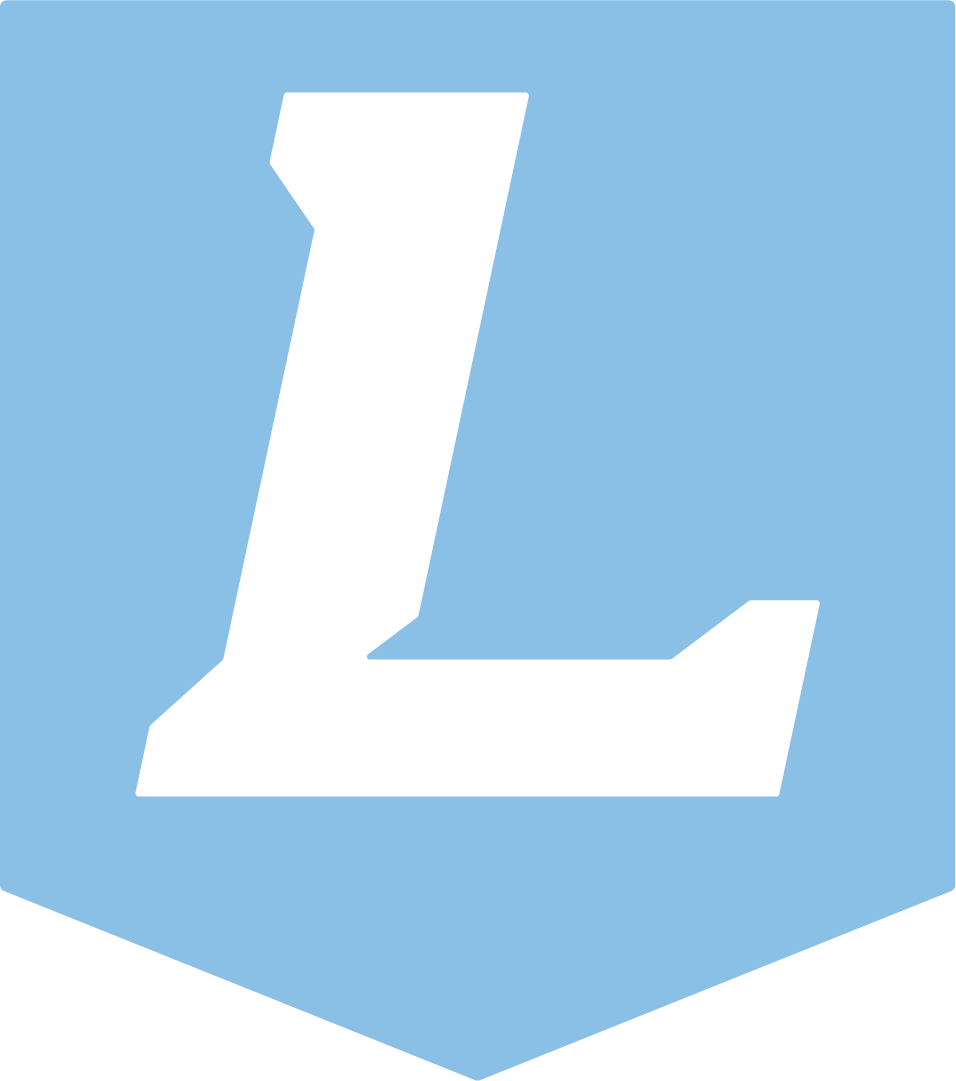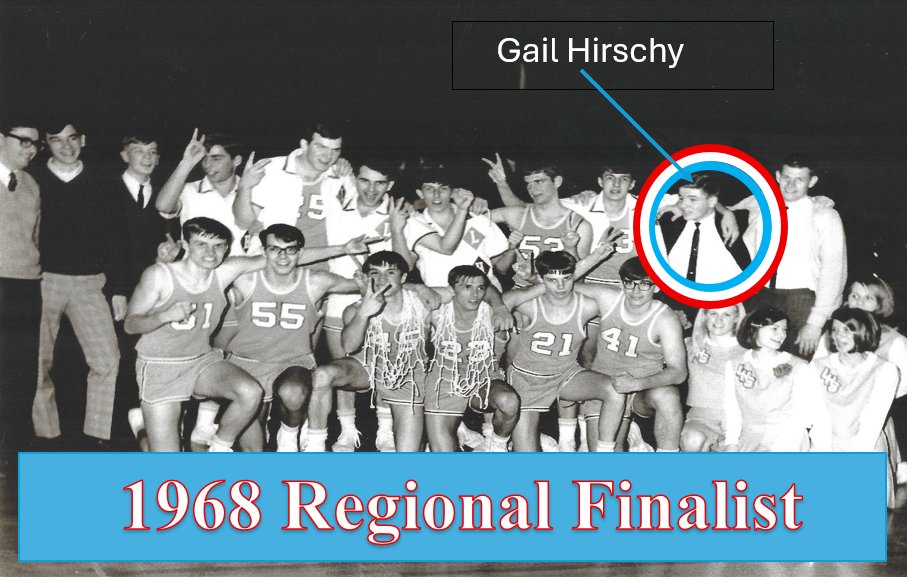Public Relations and Marketing Specialist Katie Levitz recently had the pleasure of connecting with Gail Hirschy, a 1969 Lakeland High School graduate whose remarkable journey spans five decades of educational excellence. Through their correspondence, Gail graciously shared his story, answering questions about his time at Lakeland and the path that led him from the Laker gymnasium to becoming one of the top ten vocational teachers in the United States. His story highlights not only his professional accomplishments—from coaching state championship teams to pioneering mechatronics education—but also the profound gratitude he holds for the teachers, community, and foundation that Lakeland provided.
Let's start with your journey after Lakeland. What did you do after graduating in 1969?
I attended Ball State University and graduated with a degree in Industrial and Vocational Education with an endorsement in Driver's Education. To pay for college, I drove a semi across America during the summer months. Before I even graduated, I accepted a position with Lowell Area Schools in Lowell, Michigan, where I established a new Graphic Arts and Photography program and coached football and basketball.
While at Lowell, I married a former Laker from the class of 1968. She and I have been married for 52 years now, and we have two sons and two grandsons.
Your career took you to quite a few places after Michigan. Can you walk us through that journey?
After leaving Lowell in 1977, I worked at Starcraft Corporation in Topeka, Indiana, for 10 years in management. Then I taught and coached soccer and basketball at Sarasota Christian School in Sarasota, Florida, for five years. After that, I taught and coached football, basketball, and soccer in Gaffney, South Carolina, for 10 years.
What came next?
I worked on a joint teaching adventure with South Carolina manufacturing companies and the South Carolina Department of Education for 18 years. I was awarded a grant to write, establish, and teach Mechatronics at the Chester County, South Carolina Career Center. This was truly my dream job.
What are your proudest professional accomplishments?
I was selected as one of the top ten Vocational teachers in the United States and spent time in Germany, with all expenses paid, as part of a teacher exchange program. That same year, I coached a Mechatronics/Industrial Robotics team to third place in the nation. I was also selected as Teacher of the Year for the Chester County Career Center. Another proud accomplishment was being on the coaching staff that won two State Football Championships and had my second undefeated season. And graduating from graduate school with a degree in Business Administration from Gardner-Webb University was another proud moment.
Let's talk about your time at Lakeland. Which teachers had the most significant impact on you?
There were three teachers at Lakeland back in the '60s who taught me lessons and values I would need throughout my life: Gwen Stage, Richard Butt, and Jay Smith. These teachers have had a lasting impact on my life, and I thank them for setting the foundation for my future.
Can you tell us about these teachers?
Gwen Stage taught Senior Composition and was strict in her method of teaching the correct way to write compositions. She was critical in her method of critiquing and grading, and little did I know at the time how much impact this would have upon my future. I had to take a Composition class at Ball State, and I had no trouble earning an A. I later had to write a 30-page paper to receive my National Board Teaching Certification, which is a tough process. I've had to write numerous lengthy papers throughout my career, and I owe that skill to her. Richard Butt was the Lakeland basketball coach, and I had the privilege of serving as his head manager for my entire time at Lakeland. I had been injured playing sports at LaGrange before coming to Lakeland, and Richard Butt gave me the opportunity to join a team. He taught all of us never to give up, always to dig deeper, and to strive for perfection. The 1968 basketball team became Fort Wayne Regional Finalists, losing to Fort Wayne Central Catholic in the finals. We did not give up! Jay Smith was the Lakeland football coach and Industrial Arts teacher. He's the person who got me interested in Vocational Education. Not every student would be able to go to college, and vocational training was the up-and-coming path to a non-college degree. Vocational jobs are what drive America's manufacturing sector. I became very interested in the vocational field, particularly in teaching and training students for manufacturing positions. I have never regretted the decision.
What are your most memorable moments from Lakeland?
The most satisfying memory was being a member of the 1968 Regional Finalist basketball team and having our picture hung in the Lakeland High School gym. The community came out and supported us, filling the Lakeland gym game after game. After winning the East Noble Sectional, the LaGrange Fire Department and Police Department met the team bus at Purity Supermarket, allowing the team to ride the firetruck through LaGrange to Lakeland High School for a late celebration. Red lights flashing and sirens wailing—what a memory! What great support the community provided for the team.
Any other special memories?
Marching every night in the annual Corn School parade. The Lakeland band would lead the parade each night and sometimes even march the parade route a second time at the end. There were a lot of students in the band, and the community support was overwhelming. Annual musicals at the Lakeland auditorium were another highlight, strongly supported by the community, with sell-out audiences for three consecutive nights.
What role did community support play in your experience?
In the '60s, community support and pride were what drove the Lakers to succeed in every aspect of the school. Quality education and a huge variety of activities meant everything to the student body of Lakeland High School, along with strong community support.
How did Lakeland prepare you for success?
Lakeland prepared me by teaching and establishing an educational foundation on which to build my career and life. All I needed to do after high school graduation was to continue building upon the foundation that was established at Lakeland. There were many times during high school I did not see the relevance of what was being taught, but years later, the relevance was revealed to me through experiences that came my way during my career. If only I had studied harder and paid more attention in high school, many of the solutions to my career problems would not have been so hard.
What advice would you give to today's Lakeland students?
Take advantage of every opportunity that Lakeland has to offer. The knowledge you gain while in high school will benefit you as you travel the path of life. Always accept people for who they are because you will never know when you will meet them again or how they will help you later in your life.
Did you reconnect with Lakeland classmates over the years?
Yes! I met Lakeland classmates who were working alongside me while I was living in Florida—I had no idea they lived there. While I was working at the Chester County Career Center, I needed to use the library at the University of South Carolina, and the head librarian was a 1969 Lakeland alumna. I had no idea she was a librarian. My son was interning at a local hospital in North Carolina, pursuing his PharmD degree, and his mentor was a 1969 Lakeland graduate who was a Medical Doctor. Imagine a fellow high school graduate mentoring your son!
Why is it essential to continue supporting Lakeland schools today?
Lakeland has established itself as a pillar that unites a community. When Lakeland was first created in the 1960s, I can still remember the community objection over combining four high schools that were archrivals in academics and extracurricular activities. After Lakeland was established, the entire four-school community finally united, becoming one educational community proud to be called Lakers, with overwhelming support from every part of the corporation. Lakeland was well respected throughout Northeastern Indiana and beyond.
What made Lakeland special to you?
Lakeland was considered a smaller high school where students knew each other and socialized with each other. This created many bonds, and some of them are still in existence today.
Any final thoughts about your Lakeland experience?
Lakeland provided me with a strong foundation for my educational endeavors and career. I learned a lot while attending Lakeland. I only wish I had paid more attention and absorbed the rest of the knowledge the teachers were attempting to teach me. What I missed in high school, I had to learn from life experiences, from my failures and successes. I encountered a lot of Lakeland alumni throughout my journey in life. We would talk about our experiences at Lakeland, and all communication concerning our high school experiences was positive. Lakeland is a significant part of my life, and I am proud to be called a Lakeland Laker alumnus.

